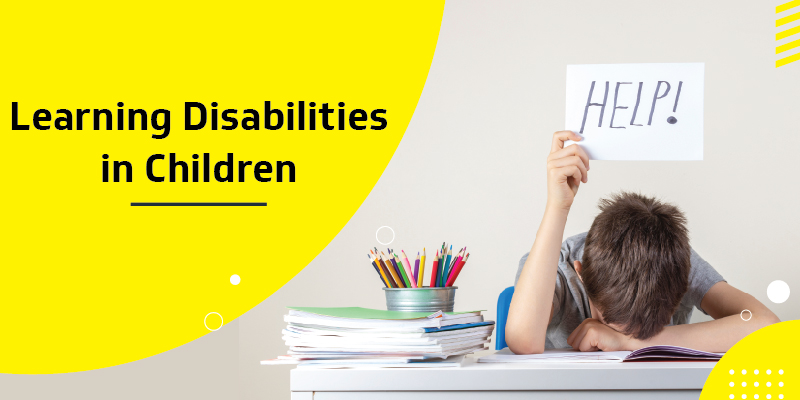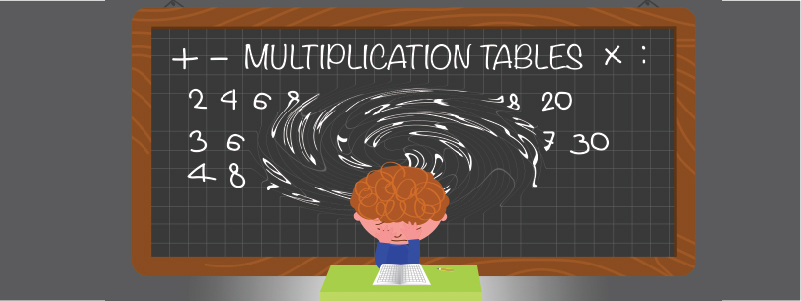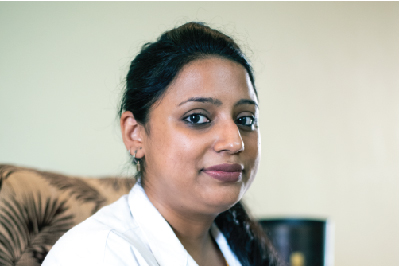
Learning difficulty in children is a serious condition and therefore requires early help from experts. Every brain works in a different way. In some children or even adults, the brain can’t process new information at the same rate. This may be due to genetic, developmental, or environmental reasons, among the commonly understood factors.
“My child takes too much time to learn new things.”
How many times have you heard your friend or relative say that? How many times have you worried for your own kid?
Some think it’s an excuse, some call it “being slow“.
Let’s read on to understand a little more about the causes, types, signs, detection, and ways of handling learning disorders.
- Learning Difficulty or Learning Disability
How do we receive information?
We read, ask, hear.
How do we process the information?
We read, write, listen, try to understand the instructions we receive.
No, not really that simple. There’s a long pathway involving our senses and brain. Processing information, even the basic daily chores, require certain capabilities of the brain which may be lacking in some people.
And no, you can stop relating this with someone’s smartness. In fact, it has been observed that people with average or above average intelligence level suffer from learning difficulties. It’s just that such patients see, read, hear, and perceive things in a different way than someone without this difficulty. As a result, children can’t perform well in class, people can’t manage daily activities the way they are expected. A problem with learning process brings the disparity between one’s capabilities and expectations.
Autism, ADHD, these aren’t same as learning issues either. Let’s talk about these conditions another day.
- Possible causes of Learning Difficulty
We don’t completely know yet. Several factors have been suspected or identified as possible contributors to one’s difficulty with learning new things.
- Family history and genetic build-up
- Neurological or other serious medical conditions
- Growth or developmental issues at a prenatal or neonatal stage for example:
- Severe intrauterine growth restriction
- Exposure to alcohol or drugs before birth
- Premature birth
- Psychological trauma or early childhood abuse can be a strong factor due to a potential effect on the brain development
- Physical trauma like head injuries or nervous system infections
- Exposure to environmental factors like high toxin levels (example lead)

- Types of Learning Disabilities
- Types of Learning Disabilities
Reading Difficulty: Dyslexia
A dyslexic individual may have difficulty reading something fluently. After reading, they may struggle with understanding, recalling, or drawing deductions from what they have just read. Such children may find spelling, grammar, and comprehension, challenging.
Reading disability difficulty may be associated with other language-based learning disorders and make it difficult for the patient to communicate or express themselves well.
Writing Difficulty: Dysgraphia
Difficulty with numbers: Dyscalculia

- Nonverbal learning difficulties

Dyspraxia
Auditory Processing Disorder
Visual Processing Disorder
Children with Visual Motor Deficit have poor hand-eye coordination and flounder with drawing, copying, following text on paper. They also have a tough time distinguishing two objects of similar looks.
Language processing disorder
- Signs of Learning Disorder
- reading, spelling, writing, solving math problems, memorizing anything
- communicating or expressing effectively
- struggling with school work compared to kids in similar age group
- processing instructions
- remembering something they have heard just then
- lacking hand-eye coordination, may be noticeable during sports, walking, or even holding a pencil
- finishing homework on their own
They may exhibit signs of marked emotional distress during studies or at school and poor social skills.
- reading, spelling, writing, solving math problems, memorizing anything
- communicating or expressing effectively
- struggling with school work compared to kids in similar age group
- processing instructions
- remembering something they have heard just then
- lacking hand-eye coordination, may be noticeable during sports, walking, or even holding a pencil
- finishing homework on their own
They may exhibit signs of marked emotional distress during studies or at school and poor social skills.
Early identification of a troubling issue ensures early intervention, and the easier it gets to deal with it.
- A school-going child’s dilemma with learning disability
Detecting a child’s learning difficulty may be possible if we watch out for:
- Lack of improvement in a child’s academics even with help from teachers and/or parents, for a minimum of 6 months period
- Child shows progress below expectations judged by the age and grade
- A child struggles with daily activities beyond studies
- Has no known visual / hearing impairment, intellectual Disability
Psychologists and Special Educators diagnose the type of learning disorder by looking for these and more specific signs.
- Handling Learning Problems
Severe Anxiety or Attention-Deficit Hyperactivity Disorders (ADHD) in combination with a learning disorder may pose a far more serious challenge to the child and their therapist / Educator.
Getting help as soon as possible can avoid a lot of trouble for your child in the later years. Experts note that symptoms of learning impairments begin to show as early as in toddler and pre-schooler stages. Instead of letting this condition have a grip on your child’s future, look for timely intervention to make sure you give them the best chance to beat all odds and become the person they aspire to be.
- Role of a Special Educator
A Psychologist with qualification and training as special educator can be of immense help to children with learning disorders. A Special Educator would be able to give a structured Remedial Therapy to the child regularly in addition to normal school so that any gaps can be bridged or for management and improvements in these issues. Alongside they also help the child develop coping mechanism to handle their own fears and concerns. A mental health counsellor can ask the right questions, make accurate observations, understand the child’s fear, and plan for therapy Focusing on an overall personal development.
Let’s take a look at this example.A kid was sent to the school counsellor after she was caught copying another student’s math homework. The parents were called. They went through the usual anxiety and emotional stress when being informed by the teacher that the kid was being suspected of cheating for quite a while. The teacher explained that the child’s homework was nearly always correct but her test scores were consistently low. The girl admitted to cheating in math but refused to explain herself. The counsellor started investigating.
Surprisingly, the girl’s grades had been consistently good overall. Her only struggle was with math, and for years. The counsellor asked her to solve some math problems right there. After the session, the parents were referred to a psychologist who assessed and confirmed that the girl indeed had a Math Learning Disability. A special educator worked on the girl and with regular training for a few months, there was marked improvement.
The school counsellor, psychologist, and the special educator, all three parties helped the parents understand that the girl’s action of cheating was not from malintent but due to her learning disorder. She had Dyscalculia.

Ms Trisha Ray
Consultant Psychologist and Special Educator
(Masters -Clinical Psychology, B. Ed – Special Education, CBT – USA, RCI registered)
She is highly skilled in Psychological Consultation, Assessment (up to 17 years), and Psychotherapy for children, adolescents, and adults.
Ms Trisha can be consulted at RxDx Healthcare, Whitefield, or Online via platforms such as Skype, Mfine or WhatsApp (Telepsychology).

